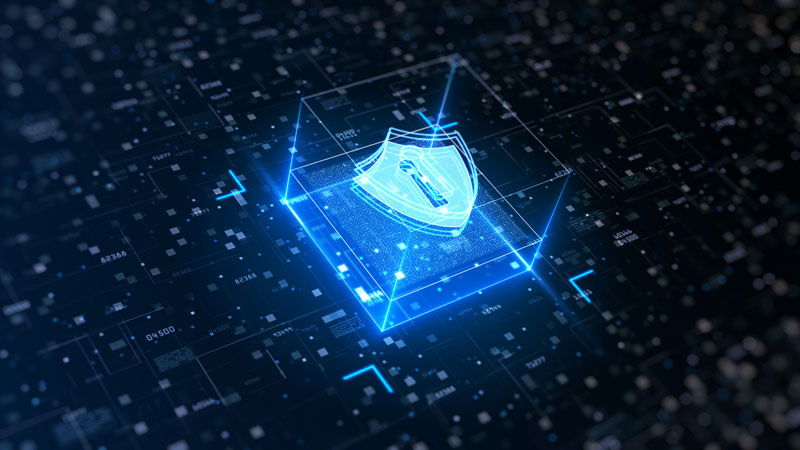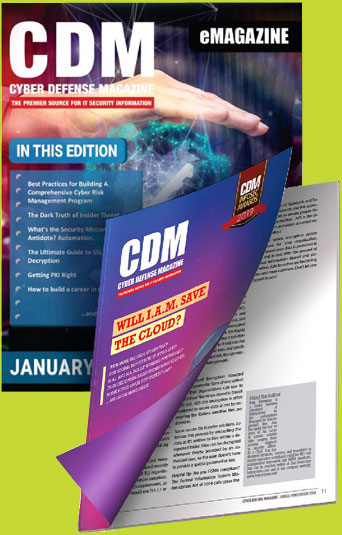By Deborah Boyland
With more digital services and accounts available to you than ever, keeping your personal information safe is paramount.
Cyber security is essential when your data is already everywhere. To prevent a breach, it is crucial for businesses and customers alike to practice better cyber security to keep important personal information safe.
How do you prevent theft if the thief is already in your home? With proper cyber security, you can keep your data safe, despite it being accessible across the Internet. In this article, I will discuss threats to your cyber security and offer my top 4 tips for preventing a breach.
Understanding Threats to Your Cyber Security
There are many different types of cyber-attacks that can result in the misuse and theft of your personal data and information.
Common examples of cyber-attacks include:
- Phishing: The use of malicious emails to lead users to click malware links and expose sensitive information.
- Malware: Malware is often regarded as the most common cyber-attack and uses malicious software to gather information and damage a digital system.
- Man-in-the-Middle (MitM): Think of MitM as advanced digital eavesdropping – a cybercriminal inserts themselves in a communication channel to filter and steal data.
- SQL Injection: Structured Language Query (SQL) injection is enacted through the upload of malicious SQL scripts that allow for the manipulation of SQL databases.
- Zero-Day Exploit: The exploitation of recently released software or hardware before patches can be implemented.
- Ransomware: A specific type of malware that uses data as ransom, threatening to publish data or block access until the criminal’s terms are met.
- DNS Attacks: The manipulation of a vulnerable Domain Name System (DNS) to mislead visitors to malicious sites and links.
While the reality of the attacks can be relatively complex, keeping your information safe does not have to be. With this in mind, here are my top 4 tips for preventing cyber security breaches:
Utilize Secure Password Practices
The passwords that you use across your digital accounts have a major impact on your overall cyber security. If you have updated a password recently, you are likely aware of the complexities now required for making this password strong and secure – but there is more to it than that.
Not only does your password need a level of complexity that makes it difficult to uncover, but it also should not be repeated with other accounts. When you use the same password across the board, a single data breach on one site can lead to all of your accounts becoming compromised.
Additionally, it is important to change your password regularly. While some cyber-attacks are highly evident, others can go unnoticed for long periods. Changing your password on a regular 3 to 6-month basis ensures any unwanted visitors get blocked out in a timely manner.
2. Enable Multi-Factor Authentication
Along with using complex passwords that you update regularly and never repeat, it is also essential to enable multi-factor authentication whenever possible.
Multi-factor authentication is a practice that requires users to provide more than one factor of verification or proof of identity to log in to an online account. This can include adding a mobile number or enabling biometric verification such as fingerprint or face-reading technology.
With the help of this type of authentication, your accounts become secured as a password leak will not be enough for a cyber-criminal to access your data. With biometric verification factors especially, getting past this authentication can prove too big a task for many of these criminals.
3. Encrypt Your Data
Data encryption is the process of translating information into a code that can only be interpreted with the use of a special key. Put simply, this means that even if a cyber-criminal gains access to your data and information, they will be unable to read it without also having access to the key.
Thankfully, these days there are many different ways to encrypt your data with ease – one of the biggest being the use of a VPN. A VPN – or Virtual Private Network – allows you to employ encryption when using the Internet. This helps to protect you against malicious links and software you may encounter when browsing the web, as well as adding an extra layer of protection for your accounts and passwords.
Be Wary of What You Share
We’ve all heard the term “stranger danger” as it applies to being cautious of unknown or suspicious people in our real lives. The same concept should be applied to your online behavior.
Any time you create or use a digital account, it is important to take a thorough look at the settings to see what privacy options you have. Additionally, it is crucial to be cautious of what information you share via social media or other digital channels, as this data can help cyber-criminals to uncover your passwords and other sensitive data.
Final Thoughts
Keeping your information safe and private can feel like a huge task in this digital era – but with more and more cyber-attacks and data leaks occurring every day, having the proper security in place is a necessity.
Practicing good cyber security does not have to be overwhelmingly complex or difficult. Simply staying on top of your password changes, using multi-factor authentication, encrypting your data, and being wary of what you share can go a long way in terms of digital protection.
About the Author
Written by Deborah Boyland


